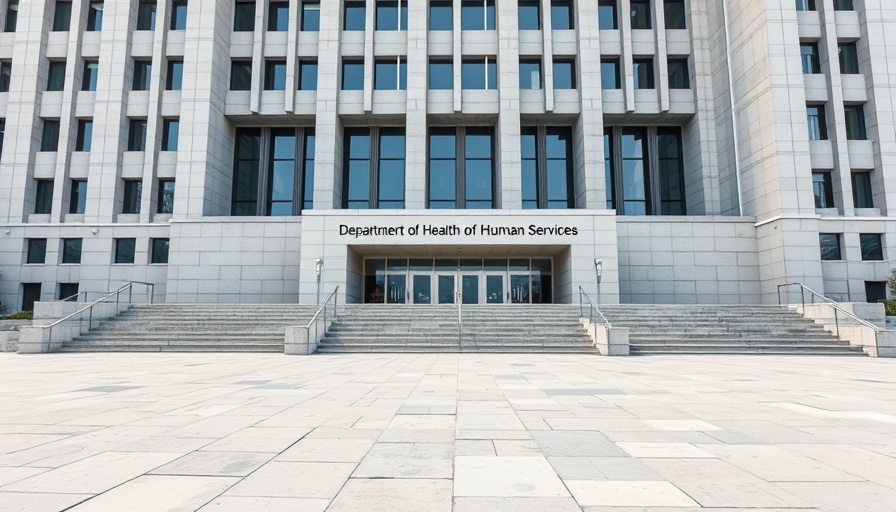
Provider Taxes: The Backbone of Medicaid Funding?
In recent developments, the Centers for Medicare & Medicaid Services (CMS) proposed a significant overhaul of state provider tax policies that could sharply impact how states fund Medicaid. For decades, provider taxes have existed in various forms, allowing states to boost their Medicaid reimbursements from the federal government. This newfound scrutiny from the CMS seeks to end a system argued by some as manipulated, casting doubt on the reliance of healthcare providers and state budgets on these taxes.
Understanding the Proposal's Implications
The proposed rule by the CMS could be construed as a direct threat to the state supplemental payment programs, essential for keeping healthcare facilities afloat, especially those involved in Medicaid. Each state—except Alaska—has instituted provider taxes to finance Medicaid spending, essentially inflating their reported expenditures to draw more federal reimbursement. These systems have supported hospitals and other health agencies, as many health providers report financial losses in coverage for Medicaid patients. As parameters around these taxes tighten, questions about how service provisions will be managed loom large.
The Call for Transparency in Healthcare Financing
There is an increasing demand for transparency related to how provider tax revenues are being utilized. Watchdog organizations advocate that clearer oversight of these funds is necessary as they often signify complex financial maneuvers that transfer the state’s fiscal responsibilities onto federal shoulders. The escalating tension surrounding the flow of these funds highlights the urgent need for accountability and fairness in healthcare spending—especially in light of proposals that could fundamentally alter existing tax arrangements.
Counterarguments: The Case for Maintaining Provider Taxes
Supporters of current provider tax systems argue that they are essential lifelines to prevent Medicaid providers from going under. The assertion that states employ "gaming" strategies may overlook the fundamental challenges faced by healthcare systems that serve vulnerable populations. With calls for cuts in federal spending that threaten to streamline Medicaid budgets, it is crucial to examine who truly bears the brunt of these changes.
A Closer Look at Federal Spending and Medicaid
As federal spending faces consistent scrutiny, states using provider taxes perceive the funds as a necessary means to fill budgetary gaps while meeting the coverage requirements for hard-hit populations. Critics, including the Trump administration, have stated that provider taxes indirectly facilitate funding for initiatives they oppose, such as extending Medicaid coverage to noncitizens. The implications of such a rule may extend well beyond budgetary concerns, potentially affecting how healthcare is administered across the board.
Local and National Perspectives on Health Initiatives
The dialogue surrounding provider taxes not only resonates at a national level but also has local implications, particularly in states like California, which by extending Medicaid to noncitizens, showcases how state policies can clash with federal perceptions of responsibility. The fallout from stringent provider tax rules may disproportionately affect communities reliant on Medicaid, raising larger questions about access to healthcare and defining the essential nature of health and wellness as a public good.
Future Predictions for Medicaid's Funding Landscape
With looming legislative changes, the future of provider taxes and state-funded Medicaid could shift dramatically. Awareness and vigilance regarding how healthcare policies evolve can empower communities to advocate for sustainable healthcare practices. Stakeholders—including patients, providers, and policymakers—must collaborate to navigate these challenges while prioritizing health equity and access for all.
The proposed rule by the CMS marks a crucial turning point in the conversation about healthcare funding and the roles that local and federal entities play in sustaining essential health services. As discussions unfold, it’s vital for all parties involved to remain engaged and informed.
For those interested in exploring further how changes to healthcare policy might affect health and wellness in their communities, consider consulting local health forums or organizations dedicated to advocating for healthcare equity.
 Add Row
Add Row  Add
Add 




 Add Row
Add Row  Add
Add 


Write A Comment